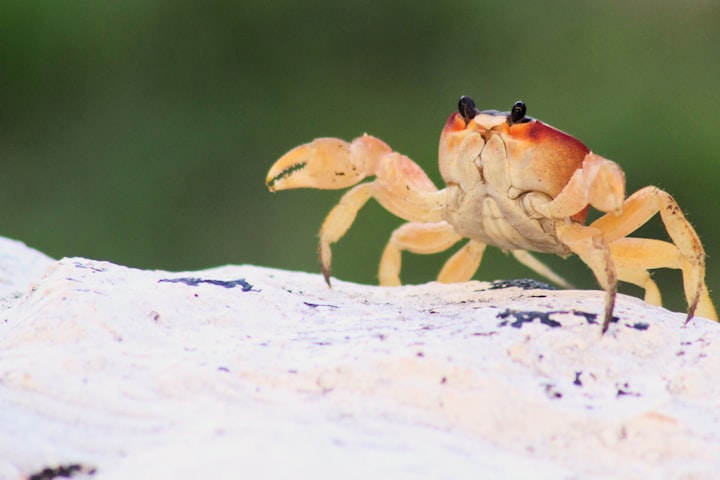The Epitome of Evolution
In our role on Earth, we are not the haughty king - we are the humble farmer.

Many look to the skies to reflect on our place in the universe, looking up at whole galaxies that seem like twinkling stars to us, but that may have already extinguished themselves. Looking at the sky means looking at the past, and the illusion of time can fade away, with the past and present converging in merely perceiving. As much as we like to think about our place in the universe, we tend to forget to reflect on our place in an environment much closer to home, because it is our home - Earth.
We think that with the passage of time, we only improve, but there are species outside of humans that remind us that improvements are not necessary to survive and thrive - or, don’t fix what’s not broken. Evolution has created species that have hardly had to evolve, or have found a consistent successful body, and in one instance, might have even sparked human domestication itself, which has led to current Western society. We are not the epitome of evolution - we are part of the experiment.
We have not been replicated
We might be inclined to think that we are the most successful species in evolutionary history, since we have outlived at least 21 other human species, but our body type has not been replicated and survived multiple times. Instead, crab-like bodies have been replicated. Nature has found the form to be an efficient body multiple times - the process is called carcinisation, or “one of the many attempts of nature to evolve a crab,” according to evolutionary biologist L.A. Borradaile. To be fair, all of these have occurred in only in the Decapoda order of nature, but apparently the squat body with powerful pincers has worked for these beings to survive and thrive. So much so that evolution has found it to be successful five times over, from a “non-crab-like” creature, to a crab. There are not even five versions of humans that have survived, so our body type has not had the same success.
We are young
Trees are older than we can even imagine, since they have existed in their recognizable form for about 360 million years. Well, sharks are older than trees. They have been around for at least 400 million years. Since we are not meant to understand numbers that large, it helps to put them into context. If the age of the Earth, at about 4.5 billion years, were reduced to a minute, then sharks have existed for just over the last five seconds, and trees just under the last five seconds. Sharks have found solace in the depth and shallows of the ocean, so comfortable in fact that they have survived five mass extinctions. With their success rate, they are not worried about extinction, which might contribute to their unwrinkled skin even when they reach 300 years of age. By comparison, humans, in our modern form, have only been around for about 200,000 years. This translates to 0.002 seconds, or 2 thousandths of a second, in the minute of Earth’s life.
We might have been domesticated
We may have been the first domesticated animals, but how? Who could have done it? We are the ones who have domesticated animals... Instead, we can look to the plant kingdom.
For millennia, many communities of humans found success in cyclical roaming, following traveling food sources and keeping track of plants in all the different places they would frequent in changing seasons. According to historian Yuval Noah Harai, however, one plant was successful in convincing humans to stay put in one place - wheat. Wheat originated in the Fertile Crescent, which Westen Judeo-Christian society considers to be the birthplace of civilization. Western society developed out of a need to stay and tend to crops consistently. But why would plants domesticate us? It turns out that we are the most successful farmers of plants, helping to increase their numbers, and survive for our nourishment. And, plants will outlive us. We can see this from the flowers that grow through cracks in the street, or sidewalks that are lifted by the slow but powerful rise of tree roots. Therefore, when we die, whether we are buried or cremated, if not into the ocean, we feed the plants. We forget that we are a part of nature, and nature has raised us. Whether we were successful in consistently moving, or staying in one place to harvest, plants care for us.
We can be our own epitome
As much as we pretend to know and understand nature, nature is just experimenting for themself, and we are not the epitome. Crab-bodies have been replicated, sharks are successfully not extinct for millions of years, and plants may have done their own experimenting on us. We are not the epitome, but we can care enough to lessen our ego and accept ourselves as part of nature once again, to be able to save ourselves, and continue to be a success story in evolution’s experiment.
About the Creator
Ariana GonBon
27yo bi Xicana. There's always more to write about, in more interesting ways than white men. Follow me @arte.con.ariana, all tips will go to @openyrpurse, both on Instagram.






Comments
There are no comments for this story
Be the first to respond and start the conversation.